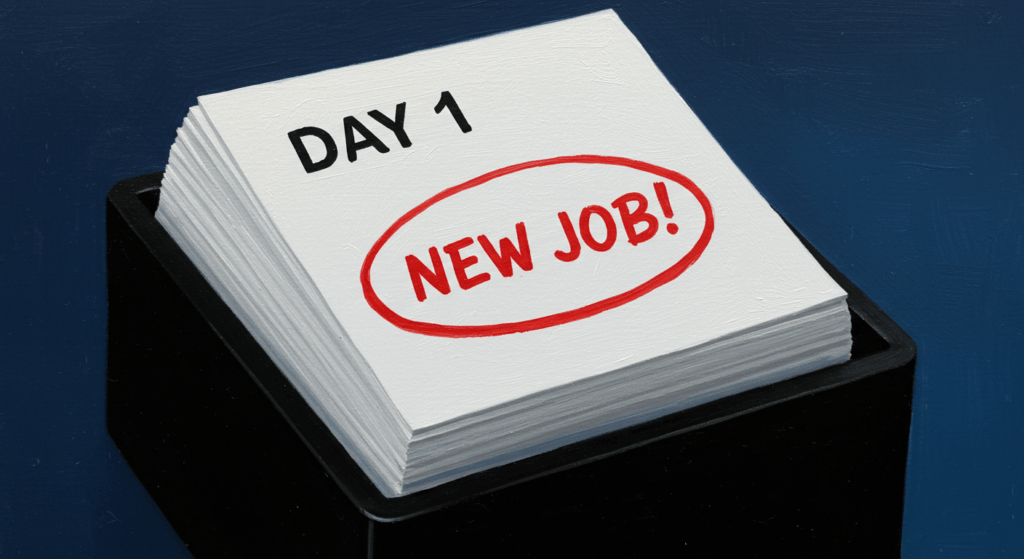(Okay, so you’ve landed your first job offer—or are about to—and you’re thinking… how the actual heck do I talk money? Let’s journal about that.)
So, How to Negotiate Like a Pro
1. Deep breath, you’ve earned this moment
First off—congrats. You’ve done it. Interviews, vetting, résumé stuffing, and now—offer. That’s freaking awesome, so pause and feel that win. Then take a deep breath, grab a pen, and start scribbling: “What do I actually want…?” and “What’s realistic here?” It’s not rude. It’s… smart planning, you know?
According to experts, negotiating even your very first salary is a major deal because it sets the tone for your earnings over your entire career. Even a few thousand more today can mean hundreds of thousands down the line.
2. Do your homework (seriously, nerd out on this)
Before you ask for a dime more, do your research. Hit up sites like Glassdoor, Payscale, LinkedIn—see what folks in similar roles and locations make. Use geographic filters. An entry-level job in New York vs Kentucky? Total difference, ya feel? Think of your salary range in two pieces:
- Your ideal number (dream big, but not fantasy).
- Your minimum, the bare-bone acceptable.
Keep both in mind.
3. Yes, you should negotiate—even if it’s your first time
There’s this myth that newbies shouldn’t negotiate, but nope. Many employers (like, over half) expect it, even at entry-level. It’s practically baked into the process. One study ssys it can yield an 11–20% bump.
But — and this is key — how you do it matters. Don’t demand. Be curious, confident, polite. “Thank you so much for the offer. I’m thrilled! I was wondering if the salary is open for discussion, based on industry trends…” That sort of vibe.
4. Know your value—and make it about them, too
You’ve gotta articulate what you bring to the (virtual) table. Maybe you interned somewhere and helped reduce data errors by 20%. Or you speak two languages, or you designed the UI for a mock project. Whatever. Show how that could help them, not just fluff.
Also, Harvard’s negotiation coaches say: don’t let your insecurities sabotage you before it even starts. Gather info, prepare to explain your value, and think of creative options.
5. Use a range—and consider the “ask-high” trick
Instead of just one number, give them a range with the high end being your actual target plus a little cushion. So if you want $10M, maybe ask for $11M to leave room to come down gracefully.
There’s even this tactic called “door-in-the-face”: you start with something a bit high knowing they’ll reject—and then your “real” ask feels more reasonable. Someone used it to land $30K more in each job. Wild, huh?
6. Be prepared—but flexible
Ask yourself: “Okay, if they say no to base salary, what’s still cool?” More vacation days? Remote days? Signing bonus? Tuition support? It doesn’t always cost them much but could mean a lot for you.
7. Practice so you don’t get flustered
It helps so much to role-play this with a friend or even talk it out to the mirror. Build muscle memory so when you’re live, you don’t go uhhh. Harvard-based advice recommends flexing that confidence muscle ahead of time.
8. When—and where—to bring it up
Wait for the official job offer before negotiating money. Before that, if someone asks about salary range, you can say: “Could you please share the range for this role?” Then respond smart.
Once you have an offer:
- Express real excitement—“Yay, thanks!”—then ask for time to consider, like 24–48 hours. That’s normal.
- Then when you reply, balance gratitude with clarity—“I’m thrilled by the offer! Could we discuss compensation? Based on my research and the value I bring…” and move gently into specifics.
9. Keep it human—thank them, stay upbeat, be real
You can say, “I’m super excited about the chance to join the team, and just wanted to see if there’s wiggle room in compensation.” Stay humble. Positive. This isn’t a demand—it’s part of starting your working life off right.
10. When to fold (gracefully)
Sometimes salary isn’t negotiable, especially for entry roles. If that’s the case—and you’re still okay with the job—then maybe accept and plan reevaluation in 12–18 months once you’ve proven yourself.
And if it’s just too low for what you need? It’s okay to say no. Just do it politely: “I appreciate the offer, but after considering my needs I’ve decided to pursue other opportunities. Thank you so much for your time.” Graceful closure keeps doors open.
Integrative vs distributive approach—a smart mindset
Research shows that negotiations done with a mindset of joint value—like “how can we both win?”—end up with better outcomes and satisfaction than just demanding more. Offer ideas, suggest flexibility, think long-term with them.
Role of identity & confidence—and Gen Z context
Many new grads now expect high salaries (some even aim for 75K–100K starting), which can be ambitious. But realistic research puts averages closer to 68K—or lower depending on field. Still, negotiating sets you up compounding higher raises over decades—even millions more.
Also—don’t let emotion or lifestyle needs override your ask. Focus on value, not cost-of-living or rent. It’s a conversation about fairness, not personal pleading.
Quick recap: Your first-timer negotiation checklist
- Celebrate the win! Then step back.
- Do solid research—your worth in market & location.
- Pick your ideal number and your walk-away floor.
- Express gratitude and excitement.
- Use a range or ask-high strategy.
- Justify with concrete value—quantify if you can.
- Be open to non-salary benefits.
- Role-play so you stay calm.
- Once you get offer, ask for time to respond.
- Keep tone collaborative, not combative.
- If it’s non-negotiable, weigh growth vs money.
- Ask for performance review in future if needed.
- End gracefully if you decline.
- Keep mindset collaborative—win for you and them.
Final (authentic ramble)
Negotiating your first salary? It’s kinda nerve-wracking, but also powerful. It’s the point where you step into advocating for your worth—and that’s a sign you take your career seriously. Slip in some confidence, a bit of research, and a sprinkle of human warmth (“I’m really excited…” or “hope we can find a sweet spot…”). It doesn’t have to sound like a speech. Let it sound like you—slightly awkward, earnest, maybe a little stuttering—but real.
Even if your raise request doesn’t move the number much—or at all—you’ll still have laid the groundwork. You’ll know you tried, and they’ll see you as someone who knows their value. That’s how you start decent patterns. And hey—tomorrow, when you ask for your first raise? You’ll already have practice.
You got this. And if you ever need a mock script or want to practice a tricky scene—happy to help you improvise more of these real-voice, messy-yet-solid talks.









